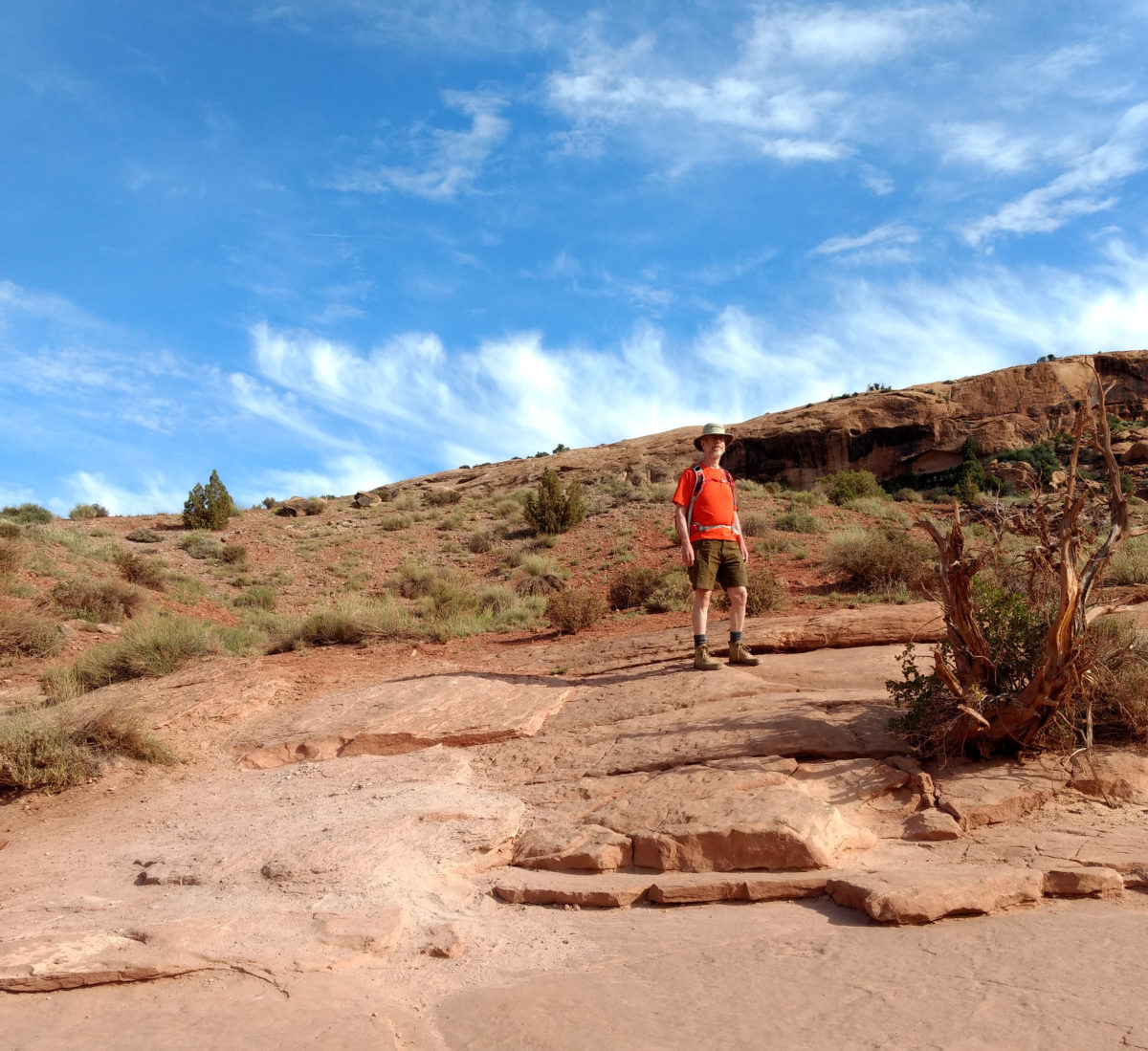I have always enjoyed exercising in the heat. In this I seem to be different from most people.
I originally took note of this fondness back in the early 1980s when I was living in Ft. Lauderdale. A ritzy local tennis club—way too expensive for me—offered summer memberships for just $100. I just got access to the outdoor courts and not to the indoor amenities, but all I wanted was a place where I could reserve a court and know that it would be available when I met someone there. The only downside was that you were playing tennis outdoors, in the summer, in Ft. Lauderdale. And it turned out I was okay with that.
I’m pretty careful not to be stupid about it. (And successfully so, it seems—I’ve never gotten heat exhaustion or heat stroke.) If I start feeling tired, thirsty, or overheated, I slow down, move to the shade, and drink some cold water.
Over the years I’ve had a variety of theories about why I didn’t mind exercising in the heat when other people hate it so much. I like to imagine that I’m just better at tolerating the heat than the average person: Everyone slows down in the heat, but maybe I slow down slightly less; at some high temperature, maybe I’d become competitive! More likely, since I’m not competitive I’m not making unfavorable comparisons between my speed in the heat versus my speed in cool weather, so the fact that I slow down doesn’t make me unhappy.
Recent research has given me a new, much more likely reason why I like exercising in the heat. On Rhonda Patrick’s Found My Fitness podcast, I heard an interview with Dr. Charles Raison, in which he described the results of a study suggesting that Whole-Body Hyperthermia was an effective treatment for depression. The experiment used infrared lights to heat people up to a core body temperature of 38.5℃ (101.3℉), but Raison is convinced that there is nothing special about the device used, and that a sauna, hot spring, sweat lodge, hot yoga—or just exercising in the heat—would have the same antidepressant effect.
Dr. Raison is studying further to try to elucidate the mechanism by which hyperthermia boosts mood in depressed people. (It seems to reduce inflammation, perhaps by boosting IL-6 which activates IL-10. Heat Shock Proteins might also be involved, since they do all sorts of things.)
I have always been inclined to blame a lack of daylight for the seasonal depression that I’m prone to suffer from during the winter—both too short of a photo-period (which I address with a HappyLight™) and too little vitamin D (which I address with vitamin D supplements), but it now occurs to me that a lack of opportunity to exercise in the heat (and thereby raise my core body temperature high enough to trigger whatever it is that reduces depression) may be an independent factor.
It seems very likely that, just like my desire to spend time outdoors in daylight is probably self-medicating to boost my vitamin D and regulate my circadian rhythm, my desire to exercise in the heat is probably self-medicating to boost my mood.
I hesitate to rejoin a fitness center just to get access to a sauna, but I’ll have to investigate options for access to winter whole-body hyperthermia.

